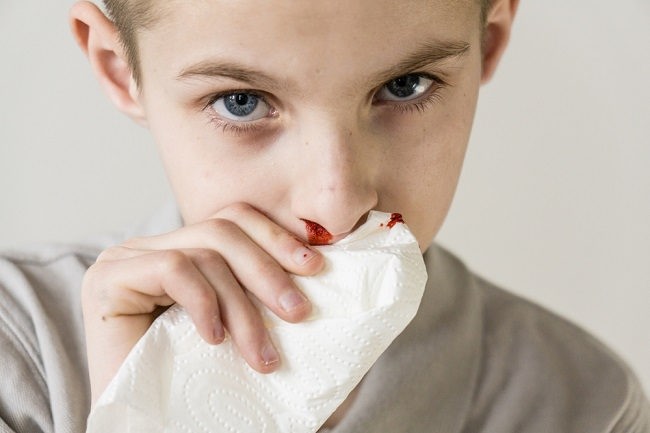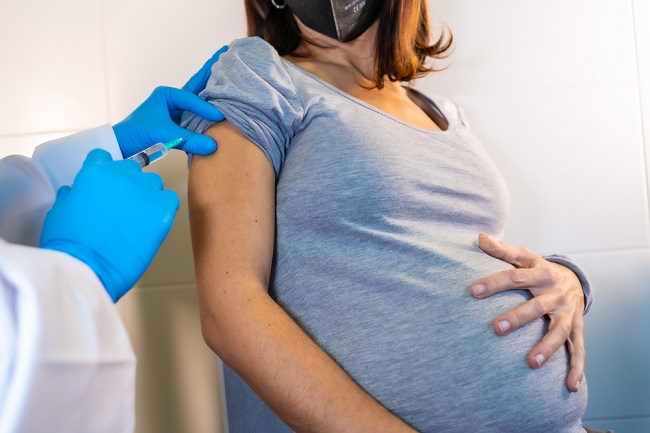Carboplatin is a drug for treat cancer, such as ovarian cancer advanced stage or small cell lung cancer. This drug belongs to the chemotherapy drugs that contain platinum.
Carboplatin will slow or stop the growth of cancer cells. This medicine will be given in the hospital by a doctor or medical personnel under the supervision of a doctor.

Carboplatin trademark: Actoplatin, Carboplatin, Carbofon, DBL Carboplatin, Fuplatin, Chemobotin, Kemocarb, Sanbeplatin
What is Carboplatin
| group | Prescription drugs |
| Category | Chemotherapy or anticancer drugs |
| Benefit | Treat certain cancers, such as ovarian cancer |
| Used by | Adults and children |
| Carboplatin for Pregnant and Breastfeeding Mothers | Category D: There is positive evidence of risks to the human fetus, but the benefits may outweigh the risks, for example in dealing with life-threatening situations. It is not known whether carboplatin is absorbed into breast milk or not. If you are breastfeeding, do not use this medicine without consulting your doctor. |
| Medicine Form | Injectable fluids or intravenous fluids |
Precautions Before Using Carboplatin
Carboplatin is a drug that can only be used according to a doctor's prescription. The following are some things you need to pay attention to before using carboplatin:
- Tell your doctor about any allergies you have. This carboplatin should not be used by patients who are allergic to this drug or to oxaliplatin or cisplatin.
- Tell your doctor if you have kidney disease, liver disease, electrolyte disturbances, weakened immune system, or bone marrow disease, including those that cause anemia, leukopenia, or thrombocytopenia
- Tell your doctor if you are taking any other medicines, including supplements or herbal products.
- Tell your doctor that you are being treated with carboplatin before undergoing certain medical procedures or surgery.
- Tell your doctor if you are pregnant, breastfeeding, or planning a pregnancy. This medicine should not be used by pregnant women or nursing mothers. Use effective contraception during treatment with carboplatin up to 6 months after the last dose.
- As much as possible, avoid close contact with people with infectious diseases that are easily transmitted, such as the flu, while undergoing treatment with carboplatin, because it can increase your risk of contracting it.
- Consult your doctor if you plan to vaccinate while on treatment with carboplatin.
- See your doctor right away if you have an allergic drug reaction, serious side effect, or overdose, after using carboplatin.
Dosage and Rules of Use Carboplatin
The dose of carboplatin given by the doctor depends on the patient's condition, body surface area (LPT), and the patient's body response to therapy. Carboplatin will be given by injection into a vein (intravenous / IV).
In general, the following will describe the dose of carboplatin according to the conditions and body surface area:
Condition: Advanced ovarian cancer or small cell lung cancer
- Mature: For adult patients who have never had previous treatment, the dose is 400 mg/m² LPT (body surface area), given by IV infusion over 15–60 minutes. The injection was repeated after 4 weeks or until the neutrophil level was 2000 cells/mm3 and the platelet level was 100,000 cells/mm3 of blood. As for adult patients who have previously been treated with myelosuppressive therapy or patients with poor performance status, the dose is 300–320 mg/m² LPT.
Condition: Solid tumor
- Children: 300–600 mg/m² LPT every 4 weeks.
Condition: Brain tumor
- Children: 175 mg/m² LPT weekly for 4 weeks, followed by a recovery period of 2 weeks.
Condition: Bone sarcoma or soft tissue sarcoma
- Children: 400 mg/m² LPT per day for 2 days, every 21 days.
Condition: Preparation before bone marrow transplant
- Children: 500 mg/m² LPT per day for 3 days.
Condition: Retinoblastoma
- Children: 1–2 ml is injected into the subconjunctiva of the eye.
How to Use Carboplatin Correctly
Carboplatin will be given by a doctor or medical officer under the supervision of a doctor. This drug can be given through an IV or injection into a vein (intravenous/IV), into the peritoneal space in the abdomen, or into the subconjunctiva of the eye.
Carboplatin is usually given no more than once every 4 weeks. This is done to ensure that the bone marrow can regenerate and be able to produce the required blood cells.
Drink plenty of fluids while taking carboplatin to prevent kidney problems and malaise.
If treatment with carboplatin causes nausea, you should not eat before treatment or eat small but frequent meals. If needed, you can contact your doctor to prescribe medication that can reduce nausea.
Before and during treatment with carboplatin, your doctor will ask you to have a complete blood count to check your blood cell count, liver function, and kidney function.
Carboplatin Interactions with Other Drugs
Some drug interactions that can occur if carboplatin is used with certain drugs are:
- Decreased effectiveness and increased risk of infection from vaccines.
- Increased risk of seizures when used with phenytoin or fosphenytoin
- Increased myelosuppressive effect when used with other myelosuppressive agents, such as ciclosporon, aldesleukin, or rituxamab
- Increased risk of kidney damage, hearing loss, or balance disorders when used with aminoglycoside antibiotics or diuretics
Carboplatin Side Effects and Dangers
The following are some of the side effects that can occur after using carboplatin:
- Stomach ache
- Pain or feeling unwell
- Nausea and vomiting
- Constipation
- Muscle, joint, or bone pain
- Hair loss
Tell your doctor if your side effects do not subside or get worse. See your doctor right away if you have an allergic reaction to a medication or a more serious side effect, such as:
- Easy bruising, nosebleeds, bloody urine, bloody stools
- Tired, tired, lethargic, which is getting heavier
- Jaundice or dark urine
- Numbness or tingling in the hands or feet
- Sudden ringing in the ears or deafness
- Very little urine or infrequent urination
- The injected area is red, swollen, and painful
- Fever, chills, sore throat, or canker sores that don't get better
- Temporary blindness or decreased visual acuity









